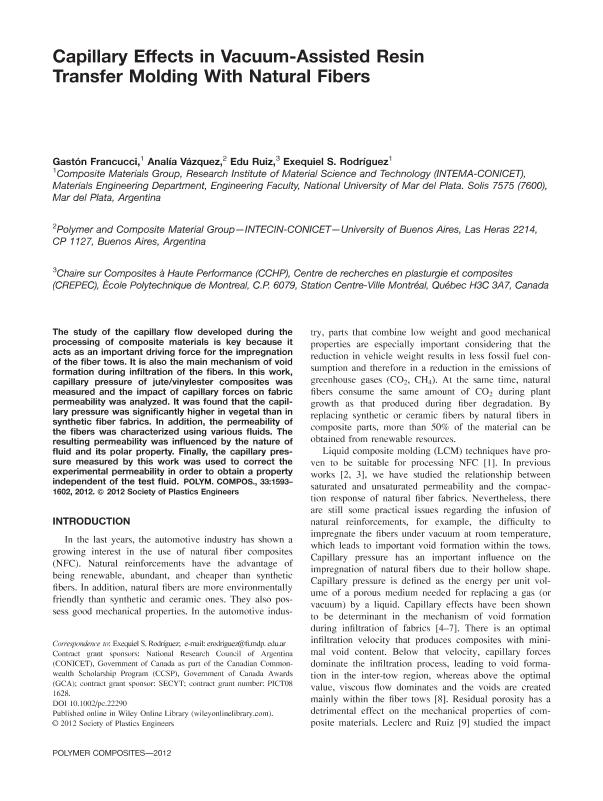Artículo
Capillary effects in vacuum-assisted resin transfer molding with natural fibers
Fecha de publicación:
11/09/2012
Editorial:
John Wiley & Sons Inc
Revista:
Polymer Composites
ISSN:
0272-8397
Idioma:
Inglés
Tipo de recurso:
Artículo publicado
Clasificación temática:
Resumen
The study of the capillary flow developed during the processing of composite materials is critical because it acts as an important driving force for the impregnation of the fiber tows. It is also a key mechanism on the void formation during infiltration of the fibers. In this study, capillary pressure of jute/vinylester composites was measured and the impact of capillary forces on fabric permeability was experimentally analyzed. It was found that the capillary pressure was significantly higher than in synthetic fiber fabrics. In addition the permeability resulted higher when the water/glycerin solution was used, because its higher compatibility with the fibers leaded to negative capillary pressures and enhanced flow. Therefore, the capillary pressure obtained in the constant pressure experiments was used to correct the applied pressure gradient in the permeability tests and thus a corrected value of permeability independent of the tests fluid was obtained.
Archivos asociados
Licencia
Identificadores
Colecciones
Articulos(INTEMA)
Articulos de INST.DE INV.EN CIENCIA Y TECNOL.MATERIALES (I)
Articulos de INST.DE INV.EN CIENCIA Y TECNOL.MATERIALES (I)
Citación
Francucci, Gaston Martin; Vázquez, Analía; Ruiz, Edu; Rodriguez, Exequiel Santos; Capillary effects in vacuum-assisted resin transfer molding with natural fibers; John Wiley & Sons Inc; Polymer Composites; 33; 9; 11-9-2012; 1593-1602
Compartir
Altmétricas




